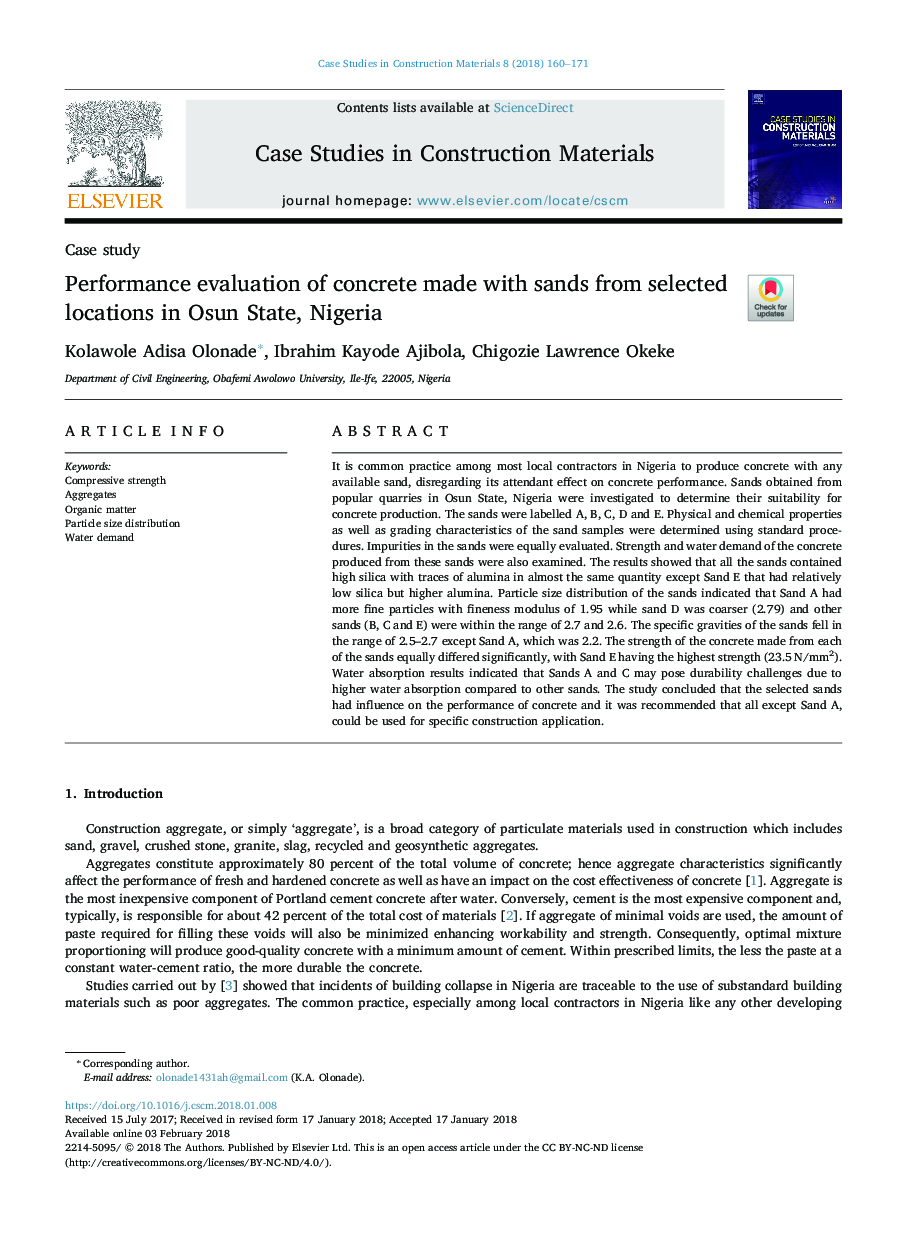| Article ID | Journal | Published Year | Pages | File Type |
|---|---|---|---|---|
| 6701820 | Case Studies in Construction Materials | 2018 | 12 Pages |
Abstract
It is common practice among most local contractors in Nigeria to produce concrete with any available sand, disregarding its attendant effect on concrete performance. Sands obtained from popular quarries in Osun State, Nigeria were investigated to determine their suitability for concrete production. The sands were labelled A, B, C, D and E. Physical and chemical properties as well as grading characteristics of the sand samples were determined using standard procedures. Impurities in the sands were equally evaluated. Strength and water demand of the concrete produced from these sands were also examined. The results showed that all the sands contained high silica with traces of alumina in almost the same quantity except Sand E that had relatively low silica but higher alumina. Particle size distribution of the sands indicated that Sand A had more fine particles with fineness modulus of 1.95 while sand D was coarser (2.79) and other sands (B, C and E) were within the range of 2.7 and 2.6. The specific gravities of the sands fell in the range of 2.5-2.7 except Sand A, which was 2.2. The strength of the concrete made from each of the sands equally differed significantly, with Sand E having the highest strength (23.5â¯N/mm2). Water absorption results indicated that Sands A and C may pose durability challenges due to higher water absorption compared to other sands. The study concluded that the selected sands had influence on the performance of concrete and it was recommended that all except Sand A, could be used for specific construction application.
Related Topics
Physical Sciences and Engineering
Engineering
Civil and Structural Engineering
Authors
Kolawole Adisa Olonade, Ibrahim Kayode Ajibola, Chigozie Lawrence Okeke,
